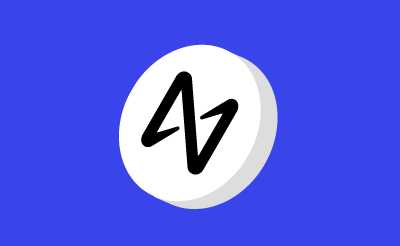The Graph
The Graph Network is a decentralized indexing protocol for creating open APIs – called subgraphs – to retrieve data on the network.
What is The Graph?
- The Graph is a decentralized protocol for indexing and querying data from blockchains enabling data query powering many applications in both DeFi and the broader Web3 ecosystem.
- Users are allowed to build and publish open APIs, called subgraphs with GraphQL to retrieve blockchain data.
- The Graph currently supports indexing data from Ethereum, IPFS and POA with more networks that will be coming in the future.
- The Graph eases the complication of Blockchain properties like finality, chain reorganizations with a decentralized protocol.
- The Graph Token (GRT), ERC-20 token on the Ethereum blockchain, is used by the participants to ensure economic security of The Graph Network and the integrity of data being queried.
Key Metrics
| Ticker | GRT |
| Token Name | The Graph |
| Token Type/Protocol | ERC-20 |
| Total Token Supply | 10,000,000,000 |
| Current Circulating Supply | See Coinmarketcap |
| Market Capitalisation | See Coinmarketcap |
| Token Creation Date | 17th December 2020 |
| Can it be mined? | No |
Who is behind The Graph?
The Graph team consists of professionals from Ethereum Foundation, OpenZeppelin, Decentraland, Orchid, MuleSoft.
The original co-founding team includes 3 highly experienced engineers, Yaniv Tal (project lead), Brandon Ramirez (research lead) and Jannis Pohlmann (tech lead).
Tal and Ramirez also previously worked at MuleSoft, an API developer tools company that underwent an IPO and was sold to SalesForce.
What is the purpose of The Graph?
The Graph was designed to create immutable APIs and data access, using the GraphQL query language with a vision to bring reliable decentralized public infrastructure to the mainstream market.
Insights
- The Graph usage has been growing at over 50% MoM and hit over 7 billion queries during the month of September 2020.
- The network consists of 4 main network service providers;
- Developers: Subgraphs and query creator
- Indexers: Node operators who stake GRT tokens
- Curators: Subgraphs’ assess and signal monitor
- Delegators: Indexers’ judges and providers.
- Graph Token (GRT) is used to allocate resources in the network. It is locked-up by Indexers, Curators and Delegators in order to provide indexing and curating services. Active indexers can earn income from the network proportional to the amount of work they perform and their GRT stake with indexing rewards and query fees.
- An open data layer on top of blockchains is where indexers run their own Ethereum archive nodes to run Graph Node on or they are also allowed to use node operators like Infura or Alchemy.
- Subgraph Manifest is how The Graph index Ethereum data based on subgraph descriptions that define the smart contracts of interest for a subgraph, the events in those contracts to pay attention to, and how to map event data to data that The Graph will store in its database. Users then may use Graph CLI for storage.
Risks
- Each network service provider has a variety of different risks to consider. To illustrate, Curators need to pay curation fee as 2.5% curation tax. This fee is burned and the rest is deposited into the reserve supply of the bonding curve.
- A single bug can result in subgraph failure which means the whole operation needs to be held until the developer fixes the bug and deploys a new version.
News and Updates:
- In August 2021, The graph announced its curator bootstrapping rewards to help improve the curation experience by granting 700 GRT to active curators who signal at least 1 subgraph, for their contributions.
- The Graph launched its partnership with Immunefi, one of the most popular bug bounty platforms in Web3 offering $2.5 million bug bounty to incentivize developers and ethical hackers to recognize vulnerabilities and shortcomings in the protocol.
- The graph made an announcement to support Arweave. The action allows users to store data permanently and sustainably with a one-time upfront fee.
Disclaimer:
All investments are speculative and involve substantial risk and uncertainty. Investors should understand the nature of digital assets including the terms of return and the risk of assets. We encourage investors to fully understand the assets and the risk associated with them prior to making any investment.



